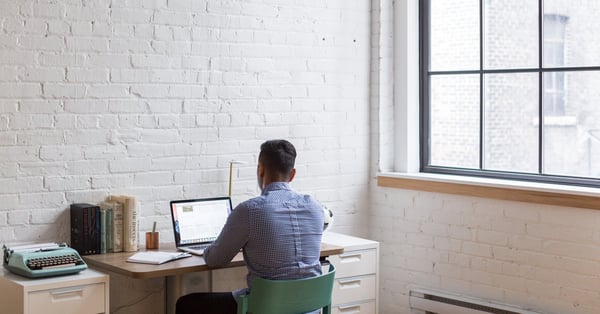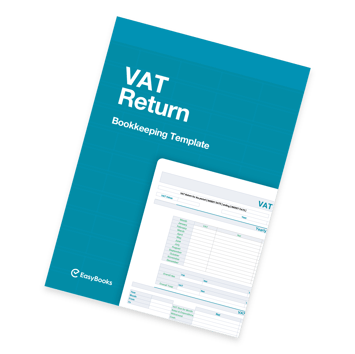If you’re self-employed or a business owner and COVID-19 has you worried right now; you’re not alone. These are challenging times after all. Not everybody is eligible for SSP, lay-offs are a last resort and it’s not always clear what help you can get.

We want you to know that we're here to support you through these uncertain times. So we’ve collated all the support you can access and how you can survive in this situation.
- What Support Is Available in the UK For Businesses and the Self-Employed?
- When Will The Support Be in Place?
- Taxable Grants
- Deferral of VAT and Income Tax Payments
- Income Tax
- The Coronavirus Job Retention Scheme
- Sick Pay Support
- What Happens If I Can’t Work Because I’m Sick, Self-Isolating or Not Eligible for SSP?
With the evolving nature of the COVID-19 outbreak, information, directives and advice from the government is continually updating and changing. From the UK to the US and from India to South Africa, the world is actively rolling out measures to ensure businesses can survive this difficult period.
This blog was accurate at the time it was written. However, the government continues to make changes as the situation develops and this may modify what has been discussed. Make sure to proactively check your government website for the latest.
For all the latest information on the situation in the UK, please visit the UK Government website. You can also find business support here.
What Support Is Available in the UK For Businesses and the Self-Employed?
With developments every day, we’re trying our best to provide relevant information to those affected by the pandemic. Stockport Accountancy Services Ltd has kindly provided all guidance, advice and information given below.
Self-Employed Income Support Scheme
The new Self-Employed Income Support Scheme will be launched to support self-employed people who have been adversely affected by COVID-19. The scheme will only be available to those who have completed a 2019 Self-Assessment, but it’s limited to those who have trading profits up to £50,000.
Anyone who has registered for Self-Assessment after 05 April 2020 will not have access to the scheme. But if you failed to meet the Jan 2020 deadline for submission of your 2019 Self-Assessment you have been given an extension to July 2020 to complete your return.
When Will The Support Be in Place?
HMRC has targeted the scheme to be in place by June 2020 and they will contact you directly if you’re eligible. The application is just a simple online form and funds will be paid directly into a bank account as a single lump sum. The grant will need to be declared on your 2020/21 Self-Assessment (due Jan 22).
Unlike the scheme for employees, the self-employed can continue to work.
The scheme looks similar to the support the Government has offered to the employed workforce. Just like the employed scheme, they base it on 'take-home' pay. The application process sounds straightforward (let's see) and importantly, HMRC will contact those who are eligible directly.
Taxable Grants
The council now has the funds and guidance necessary to distribute £54 million of grants to support specific small businesses through the pandemic. The scheme provides eligible small businesses with a grant of up to £25,000. Businesses will likely need to provide the council with their payment information to access the grant.
The taxable grants will be worth 80% of the average monthly profits (based upon the last three years (16/17, 17/18 & 18/19) and capped at £2,500 per month. Initially, the grant will be available for three months, but an extension is possible.
Deferral of VAT and Income Tax Payments
The UK Government has made temporary changes to VAT payments to help businesses better manage their cash flow. Here is the information regarding eligibility.
- All UK businesses are eligible. There aren’t any qualification criteria and this is an automatic offer with no applications required.
- VAT payments have been deferred for three months. The deferral will apply from 20 March to 30 June 2020.
- The government will pay VAT reclaims/repayments.
- Anyone with a direct debit mandate set up for VAT payment should cancel their direct debit if they are unable to pay. Do this as soon as possible to avoid HMRC making a claim for that collection.
You can find more information about the VAT deferral here. Although HMRC have deferred the payments,, the submissions have not. You're still required to submit your VAT returns on time.
Taxpayers are being given until the end of the 20/21 tax year to pay any liabilities that have accumulated during the period. If you’re experiencing any financial difficulties, more help is available from HMRC’s Time to Pay service. If you have missed a payment, or you might miss your next payment due to COVID-19, then you should call them on 0800 015 9559.
Income Tax
- If you’re self-employed, you’re eligible. This is an automatic offer with no applications required. HMRC will not charge penalties or interest for late payment in the deferral period.
- The deferral relates to all ‘payments on account’ that would be due for payment on 31 July 2020. These will still need to be paid, but not until January 2021.
- As above, if you have a direct debit mandate in place – you should cancel the mandate well ahead of any potential collection date. If you don’t do this, HMRC may claim for the collection.
Although the government has moved the deadline, the liability will not go away. Therefore, if the above applies to you, you should be mindful of the need to ensure you have the funds available to pay in Jan 2021.
As things stand, in Jan 2021, a taxpayer may have to make payment of any balancing amount for 19/20, the second payment on account that was deferred from July 2020 and the first payment on account for 20/21. This means the payment due in Jan 2021 could be a significant amount.
The Coronavirus Job Retention Scheme
Subject to conditions, the Job Retention Scheme enables employers to claim a grant from HMRC to cover 80% of the wages of their workforce. This is for those who remain on payroll but who are temporarily unable to work during the outbreak.
The scheme will run until at least 31 May 2020 and payments can be backdated to 1 March 2020 provided that employees met the eligibility criteria at the time.
Sick Pay Support
If you think you are entitled to Statutory Sick Pay (SSP), you can get £94.25 per week if you’re too ill to work. Your employer pays it for up to 28 weeks. The government details the full guidance on SSP here, but here is a rundown of the information.
- SMEs can reclaim two weeks of SSP for sickness as a result of COVID-19.
- Employers with less than 250 employees will be eligible.
- Employers should retain records of staff absences and payments of SSP. Employees won’t be required to provide a GP fit note.
- The government is legislating that SSP be paid from day one, rather than day four, of your absence from work.
Once the government has passed the legislation, it will apply retrospectively from 13 March 2020. You should talk to your employer if you’re eligible for SSP and need to claim.
Even though there’s no concrete system in place yet, the government will work with employers over the coming months to set up an appropriate repayment mechanism. This will be by way of a rebate scheme.
What Happens If I Can’t Work Because I’m Sick, Self-Isolating or Not Eligible for SSP?
If COVID-19 means you’re unable to work or you’re unable to claim SSP and you’ve paid enough National Insurance Contributions, you might be able to claim new style Employment and Support Allowance (ESA) if you’re ill.
The government has said you’ll now get paid from the first day of the claim, rather than after eight days.
If this is the first time you’ve applied for ESA, you’ll have to fill in form ESA 1 and send a fit note from NHS 111 with your claim form to show that you’re not fit for work. You should get the first payment into your bank within three weeks.
You can find the latest information on the government’s COVID-19 Action Plan. In the meantime, we’re here to help with the day-to-day of your business bookkeeping.
We’re Here to Support You
Just like most, we're not experts on the ever-changing situation that COVID-19 presents. However, EasyBooks can guide you through everyday business bookkeeping, offering tips and advice to help you operate as normal as you can given the circumstances.
With a booking app dedicated to SME owners and self-employed individuals, we’re here to support you through these challenging times and extend a helping hand. Stay safe and you can view our blog for more information here.








